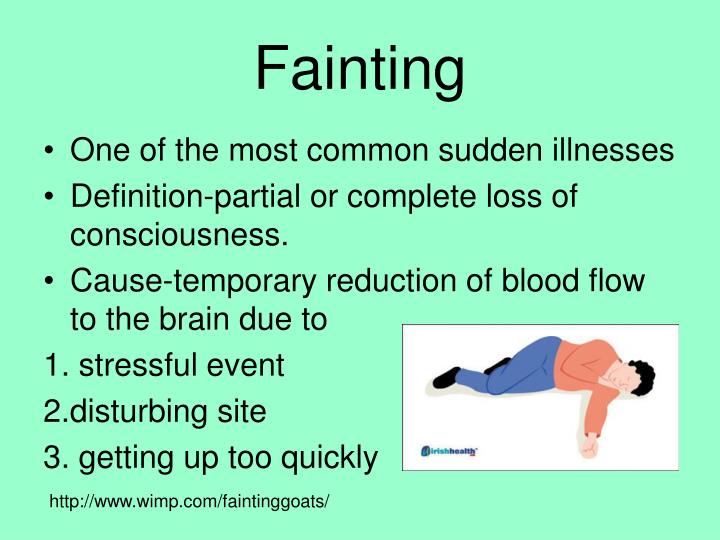The Enigma of Frequent Fainting: Understanding the Causes and Seeking Help
Related Articles: The Enigma of Frequent Fainting: Understanding the Causes and Seeking Help
Introduction
In this auspicious occasion, we are delighted to delve into the intriguing topic related to The Enigma of Frequent Fainting: Understanding the Causes and Seeking Help. Let’s weave interesting information and offer fresh perspectives to the readers.
Table of Content
The Enigma of Frequent Fainting: Understanding the Causes and Seeking Help

Fainting, also known as syncope, is a temporary loss of consciousness caused by a sudden decrease in blood flow to the brain. While occasional fainting can occur due to various factors, experiencing this phenomenon multiple times a day is a serious concern requiring immediate medical attention. This article delves into the potential causes of frequent fainting, explores the associated risks, and outlines the essential steps for seeking appropriate medical care.
Unraveling the Causes of Frequent Fainting
The underlying causes of frequent fainting can be diverse, ranging from benign to life-threatening conditions. Understanding these causes is crucial for developing an effective treatment plan. Here are some common factors that can contribute to recurrent syncope:
1. Vasovagal Syncope: This is the most common type of fainting, often triggered by emotional stress, pain, prolonged standing, or heat. It occurs when the body’s autonomic nervous system malfunctions, causing a sudden drop in blood pressure and heart rate.
2. Orthostatic Hypotension: This condition involves a significant drop in blood pressure upon standing, leading to dizziness and fainting. It can be caused by dehydration, medication side effects, or underlying medical conditions like diabetes or Parkinson’s disease.
3. Cardiac Syncope: This type of fainting is caused by heart problems, such as arrhythmias (irregular heartbeats), heart valve disorders, or coronary artery disease. It can be a sign of a serious underlying medical condition.
4. Neurological Syncope: Fainting can also be triggered by neurological disorders like epilepsy, seizures, or migraines. These conditions can disrupt the brain’s electrical activity, leading to temporary loss of consciousness.
5. Medications: Certain medications, including blood pressure medications, antidepressants, and diuretics, can increase the risk of fainting by affecting blood pressure or heart rate.
6. Dehydration: Lack of fluids can lead to a decrease in blood volume, causing a drop in blood pressure and triggering fainting.
7. Anemia: Low red blood cell count, as seen in anemia, can reduce the oxygen-carrying capacity of the blood, leading to fainting.
8. Hypoglycemia: Low blood sugar levels, often seen in diabetes, can cause fainting by depriving the brain of energy.
9. Other Conditions: Fainting can also be a symptom of various other medical conditions, including endocrine disorders, respiratory problems, and even certain types of cancer.
The Risks Associated with Frequent Fainting
Frequent fainting can pose significant risks to individuals, including:
- Falls and Injuries: Fainting can lead to falls, which can result in fractures, head injuries, and other physical trauma.
- Loss of Independence: Recurrent fainting can significantly impact an individual’s daily life, limiting their ability to work, drive, and participate in social activities.
- Underlying Medical Conditions: Frequent fainting often indicates an underlying medical condition that requires diagnosis and treatment.
- Sudden Cardiac Death: In some cases, fainting can be a sign of a life-threatening heart condition, increasing the risk of sudden cardiac death.
Seeking Medical Attention: A Crucial Step
If you or someone you know experiences frequent fainting, seeking immediate medical attention is crucial. A comprehensive medical evaluation is essential to determine the underlying cause and develop an appropriate treatment plan.
The Diagnostic Process
A healthcare professional will conduct a thorough medical history and physical examination, focusing on:
- Symptoms: Detailed description of the fainting episodes, including triggers, duration, and associated symptoms.
- Past Medical History: Any previous medical conditions, surgeries, or medications.
- Family History: Any family history of fainting or heart conditions.
Diagnostic Tests: Depending on the suspected cause, various diagnostic tests may be recommended, including:
- Electrocardiogram (ECG): To assess heart rhythm and electrical activity.
- Echocardiogram: To visualize the heart’s structure and function.
- Holter Monitor: A portable device that records heart rhythm over an extended period.
- Blood Tests: To check for anemia, blood sugar levels, and other potential causes.
- Tilt Table Test: To evaluate blood pressure and heart rate responses to changes in position.
Treatment Options
Treatment for frequent fainting depends on the underlying cause. Options may include:
- Lifestyle Modifications: Addressing factors like dehydration, stress, and sleep deprivation.
- Medications: To manage blood pressure, heart rate, or underlying medical conditions.
- Pacemaker or Defibrillator: In cases of cardiac arrhythmias.
- Surgery: To correct underlying heart conditions.
FAQs about Frequent Fainting
1. Is it normal to faint occasionally?
Occasional fainting, particularly in response to triggers like pain or prolonged standing, is considered relatively common. However, frequent fainting requires medical evaluation.
2. What should I do if I faint?
If you faint, try to lie down in a safe place and elevate your legs. Seek medical attention if you experience repeated fainting episodes.
3. Can fainting be dangerous?
While most fainting episodes are benign, frequent fainting can be a sign of a serious underlying medical condition and can lead to falls and injuries.
4. How long does fainting last?
Fainting episodes typically last for a few seconds to a few minutes. However, some individuals may experience prolonged loss of consciousness.
5. When should I see a doctor?
Seek medical attention immediately if you experience:
- Frequent fainting episodes
- Fainting accompanied by chest pain, shortness of breath, or confusion
- Fainting that occurs without a clear trigger
Tips for Preventing Fainting
- Stay Hydrated: Drink plenty of fluids throughout the day.
- Avoid Prolonged Standing: Take breaks to sit or lie down.
- Manage Stress: Practice stress-reducing techniques like deep breathing or meditation.
- Eat Regular Meals: Avoid skipping meals, especially if you have diabetes.
- Monitor Medications: Discuss any medications with your doctor, especially those that can affect blood pressure or heart rate.
Conclusion
Frequent fainting is a serious symptom that requires prompt medical attention. While occasional fainting can be harmless, recurrent episodes often indicate an underlying medical condition that needs diagnosis and treatment. By understanding the potential causes, risks, and treatment options, individuals can take proactive steps to ensure their health and safety. Consulting a healthcare professional is crucial for a comprehensive evaluation, accurate diagnosis, and effective management of frequent fainting.
:max_bytes(150000):strip_icc()/1298399-article-img-causes-of-fainting1-5a5520127bb283003773f0c9.png)



:max_bytes(150000):strip_icc()/GettyImages-1176023579-37becf74f440468a8f38ee62b7bc94e0.jpg)



Closure
Thus, we hope this article has provided valuable insights into The Enigma of Frequent Fainting: Understanding the Causes and Seeking Help. We appreciate your attention to our article. See you in our next article!